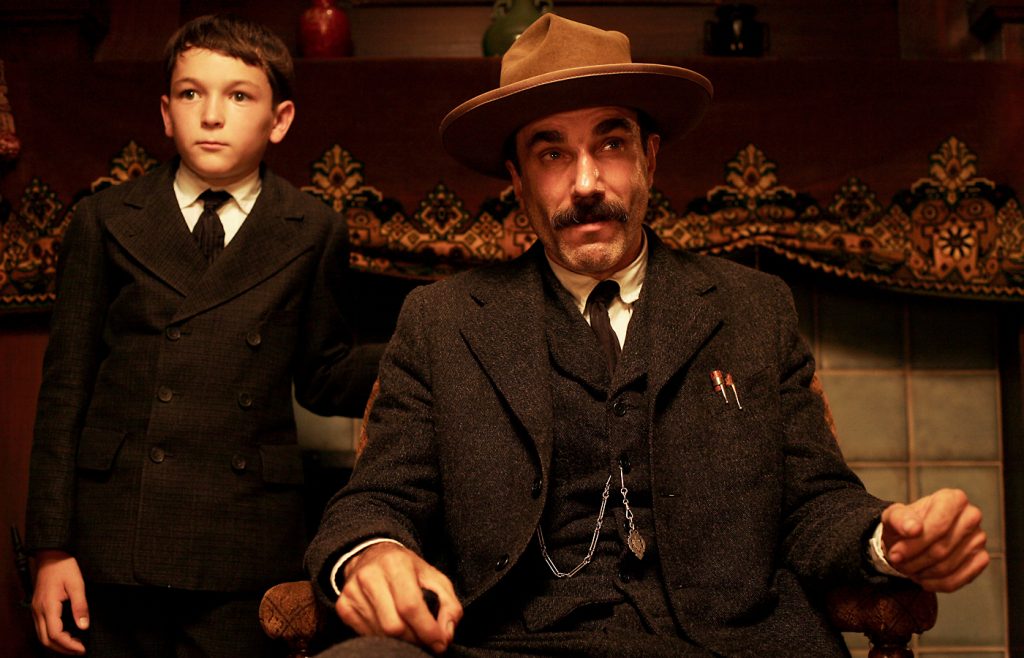
Despite the glut of sequels, parodies, and hairbrush sing-a-long romantic comedies, 2007 brought us a glittering, dark parade of gritty, apocalyptic films. Perhaps a reflection of our bleak times, crime, killers, and unscrupulous big business dominated the plots of the year’s best movies, and although grim, there was a palpable sense of boldness and exhilaration.
The films may have been black, but they were a gas. As always, we’ll count down in reverse order.
#10 Knocked Up
Judd Apatow made a leap in 2007 to become the grand pooh-bah of American mainstream comedies. His formula of gross-out sexual escapades, pointed (and sometimes obscure) pop-cultural references, and an old-fashioned code of chivalry, loyalty, and responsibility has proven pure gold with Knocked Up and its younger brother, Superbad. And while these moves certainly seem calculated, especially in hindsight, Apatow’s genius is making his sitcom machinations seem so lived in and off the cuff.
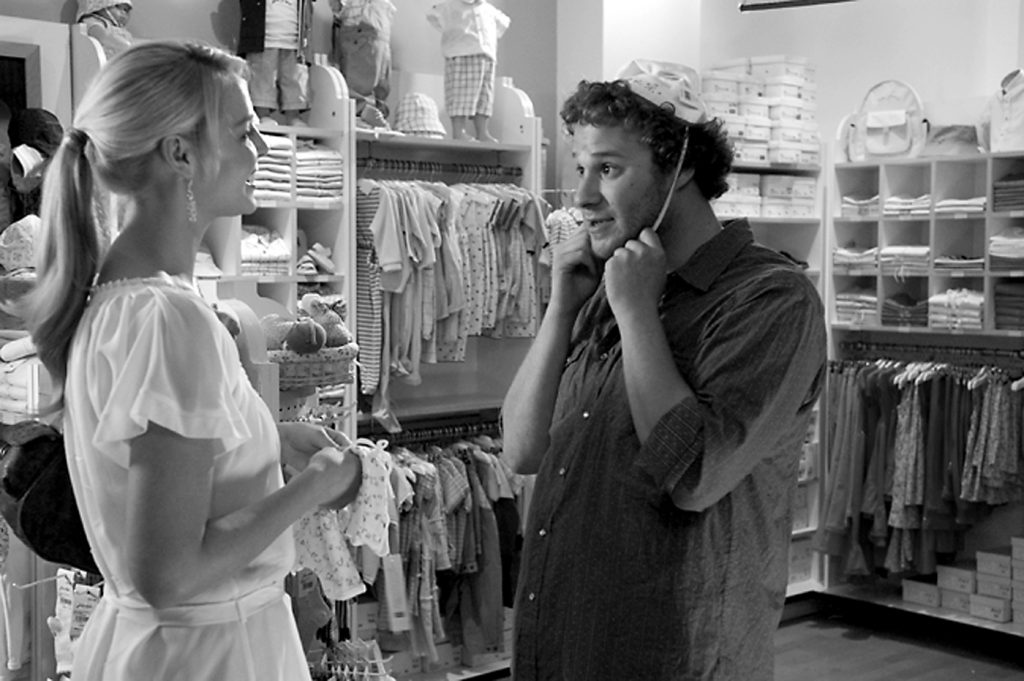
In Knocked Up, a likeable stoner impregnates a shiksa princess after a one-night stand—shenanigans ensue. What could easily be a simple and patronizing screwball skeleton is elevated to universal comedy and pathos by its appealing leads (Seth Rogen and Katherine Heigl) and its jaunty, gut-busting dialogue (the psychedelic mushrooms’ Cirque du Soleil scene is one of the funniest ever). Knocked Up is the rare sentimental film that earns its storybook conclusion.
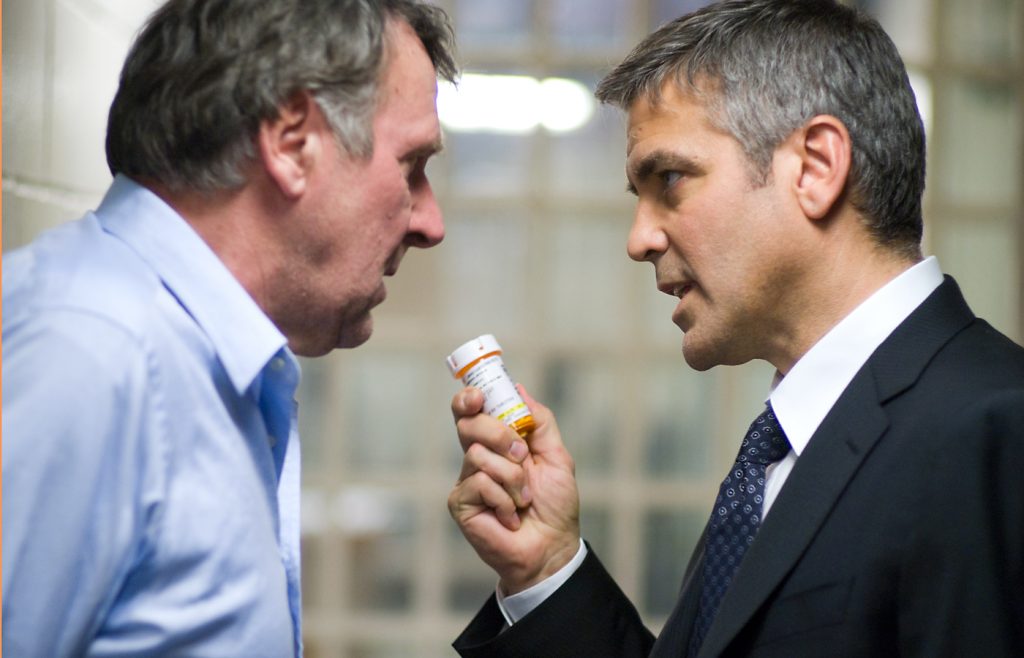
#9 Michael Clayton
Tony Gilroy’s directorial debut is an obsessive homage to the paranoid, muckraking thrillers of the 1970s. It succeeds as a crackling piece of big-screen entertainment because Gilroy fuses a queasy verité ambiguity with two towering, iconic performances by George Clooney and Tom Wilkinson.
Clooney’s title character is a conflicted, beaten-down fixer for an enormous corporate law firm who, as the movie progresses, finally decides his conscience and dignity are worth something. He’s an inspiring character in a globalized, marginalized culture.
Wilkinson’s brilliant, unstable whistleblower employs the classic literary device of the “crazy” character being the voice of reason in a corrupted frame. And Tilda Swinton’s mouth-breathing shark, Karen Crowder, is a devastating reminder that now matter how much money you make, you can still live in hell. Painstakingly mannered and realistic, and photographed with a bruised, watery chill, Michael Clayton is simultaneously grown up and soul-stirring.
#8 Once
I don’t much care for most musicals, and the arty type, where people sing throughout the film or where the musical numbers are supposed to be integrated into “real” action, I find especially cloying. Once, the enchanting low-fi Dublin musical, is different. Filled with the lovely, romantic ballads of Glen Hansard (of the Frames), Once shuns the empty spectacle of most film musicals for a deeply understood resonance of the shivering, transformative pulse of pop-music. The simple story of a guy (Hansard) who works in his dad’s vacuum-cleaner repair store and busks his songs on the Dublin street, and a girl (Marketa Irglova) from the Czech Republic who cleans houses and plays the piano at a music store, who come together and make music over one rapturous week, Once has the classic archetypal feel of elegiac romance. Hansard and Irglova’s chemistry is supple and their plaintive, tuneful songs are genuinely moving. The climax, an extended recording session, is absolutely ecstatic, and Once ends like all great romances, with the viewer yearning for more.
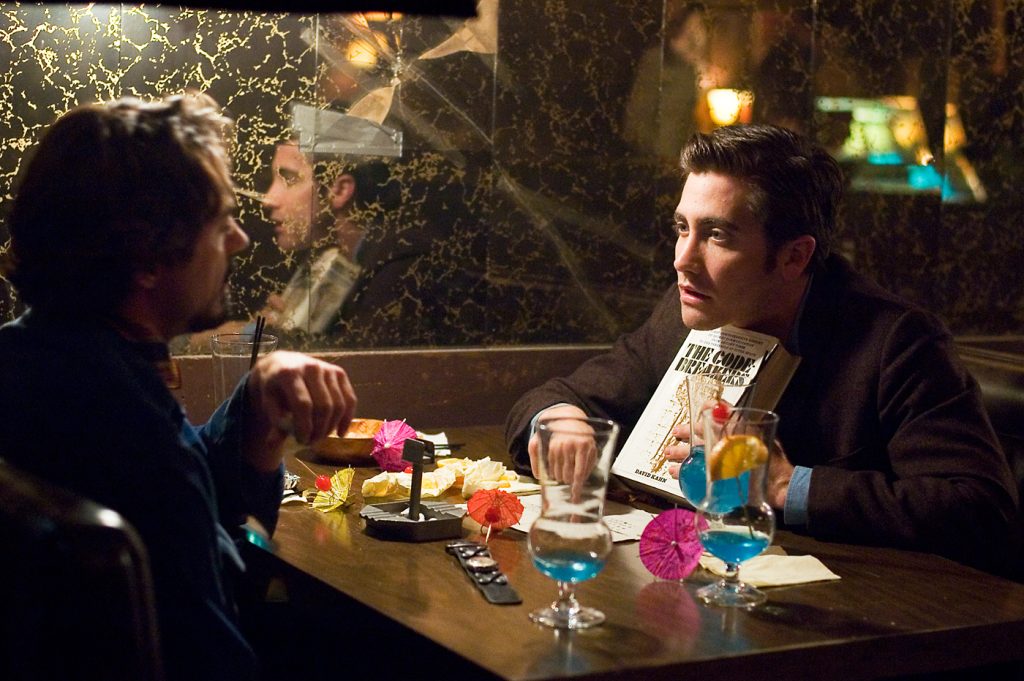
#7 Zodiac
It’s a great thrill to see a technically bold but intellectually flimsy director transform himself, and that’s exactly what happened with David Fincher and his mesmerizing and elegant Zodiac. Always a director of impressive vision, Fincher abandoned his faddish trappings and burrowed into the obsessive world of tracking a serial killer and the procedurals that stack up around the crimes.
Riveting in its stately pacing and detailed script, Zodiac follows three dedicated men as they track the baffling crimes of the Zodiac killer. Eventually, the mystery and its endless litany of clues and evidence become more powerful than the killer itself, and everyone involved is increasingly haunted.
With its holographic recreation of San Francisco in the 1960s, Zodiac is pristine and engrossing, metaphoric and immediate. It’s a mature, eerie film, one that penetrates the fetish of fear and the “monster” with a remarkable clarity.
#6 Before the Devil Knows You’re Dead
Named after a terrifying Irish toast, “May you have thirty minutes in heaven before the devil knows you’re dead,” this film marks the triumphant resurrection of the legendary Sydney Lumet. Long the chronicler of wrong time and place, Lumet takes crime and misfortune to another level with the volcanic script by newcomer Kelly Masterson. Two brothers (Philip Seymour Hoffman and Ethan Hawke) are down on their luck and looking for a quick fix. They decide to rob their parents’ jewelry store. The insurance will cover the losses and they’ll fence the jewelry for a cool $120,000. Of course, things go horribly, horribly wrong and family loyalty quickly implodes, along with nearly everyone else. Jumping around in time, Before the Devil Knows You’re Dead turns the screws on the viewer, as one horrible mistake reruns itself from different perspectives and we watch helplessly as the characters walk into buzz saws. If this sounds dark, well, it is, but it’s also tremendously entertaining, a nihilistic melodrama par excellence.
#5 Black Book
Once upon a time, before he became known for Robocop and exposing Sharon Stone’s genitals, Paul Verhoeven was a bracing and brash Dutch director who made visceral, gripping films filled with ambiguity, sex, and human violence. After the nadir of his career, Hollow Man, Verhoeven ruminated for half a dozen years and came back with his first Dutch film in nearly three decades, the beautiful and wrenching Black Book. In Nazi-occupied Netherlands, a beautiful Jewish woman watches the massacre of her family after a scam escape plan. She joins the resistance, dyes her hair blond, and infiltrates the Nazi officer’s club, where she falls in love with a conflicted and handsome top officer. This melodramatic and theatrical plot gives way to visceral human drama. Anchored by its stunning leads (Carice van Houten and Sebastien Koch), Black Book is sexy, thrilling, and deeply sad. It’s a triumphant reminder that when he’s on, Verhoeven is one of the great subverters of the Hollywood form.
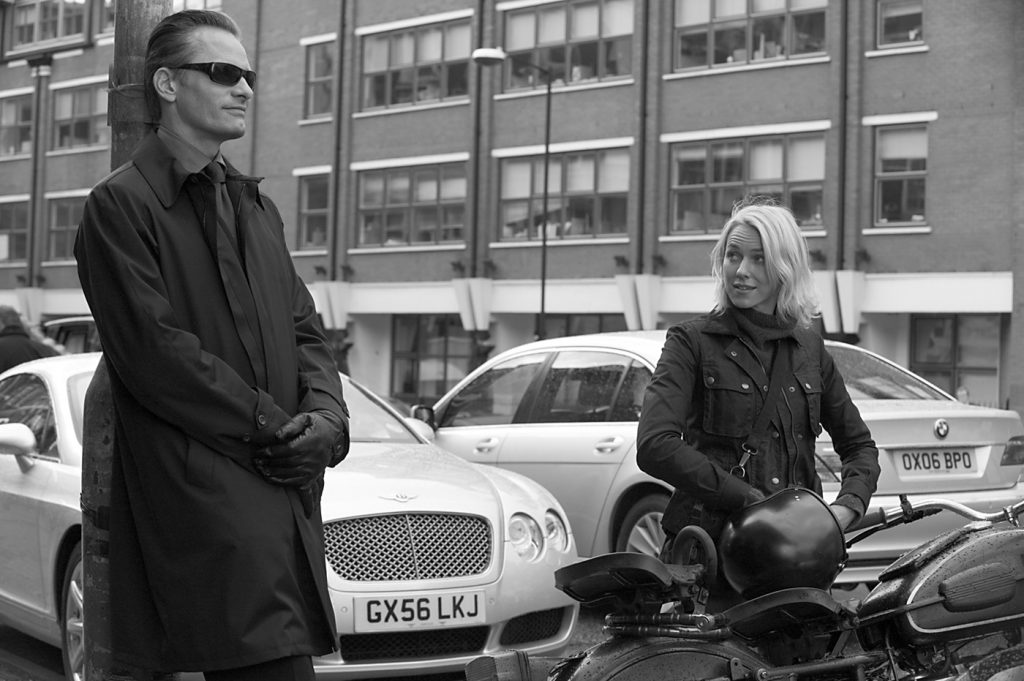
#4 Eastern Promises
David Cronenberg’s steely and engrossing meditation on organized crime, history, and homoeroticism was the most underrated movie of the year. Dismissed as an icy genre exercise, Eastern Promises is nothing less than a fearless and breathtaking foray into the erotic cultural holographs of good and evil.
Buoyed by Viggo Mortensen’s ferocious performance, Eastern Promises seduces the viewer with its classical machinations and lacquered cinematography, while subtly layering its psychological and aesthetic inquiries.
Cronenberg has become a master of hybridization—Eastern Promises is a near perfect synthesis of the intellect and the body, of genre and adventurousness.
#3 Inland Empire
David Lynch’s three-hour video epic came and went, and the few people that had access to see it in theaters were roundly split: some found it a pretentious and meandering scattershot mess, others went with its eschatological dream logic. Obviously, I fit into the latter—whatever one may say about Inland Empire, there is no disputing its absolute and defiant singularity. For the first time since his disturbing and visionary debut Eraserhead, Lynch has armed his unconscious and allowed it to reign over the image. Inland Empire is at times dark and almost overwhelmingly creepy, but like the best of his work, the film taps into a cosmic mysticism of hallucinatory power. I don’t know what Inland Empire “means” and I don’t care. Sometimes art really should be for art’s sake, especially when it’s an epic wormhole of the nighttime such as this.
#2 No Country for Old Men
A film of awe-inspiring precision, the Coen Brothers’ adaptation of the fatalistic and existential Cormac McCarthy novel was the year’s (and nearly any other’s you care to name) best thriller. And thrilling it is, but that only begins to do No Country for Old Men justice. Meditating on fate, evil, and the rare glimmer of grace, No Country For Old Men uses a drug deal gone bad as a launching point for a chilly paean to a world gone depraved. Javier Bardem’s depiction of an assassin who is nothing less than the angel of death is the stuff of legend, and Tommy Lee Jones and Josh Brolin both give soulful, resonant performances. Really, there isn’t a false note to No Country, and even its much debated final third is perfect—a devastating and quirky breath of air after the storm.
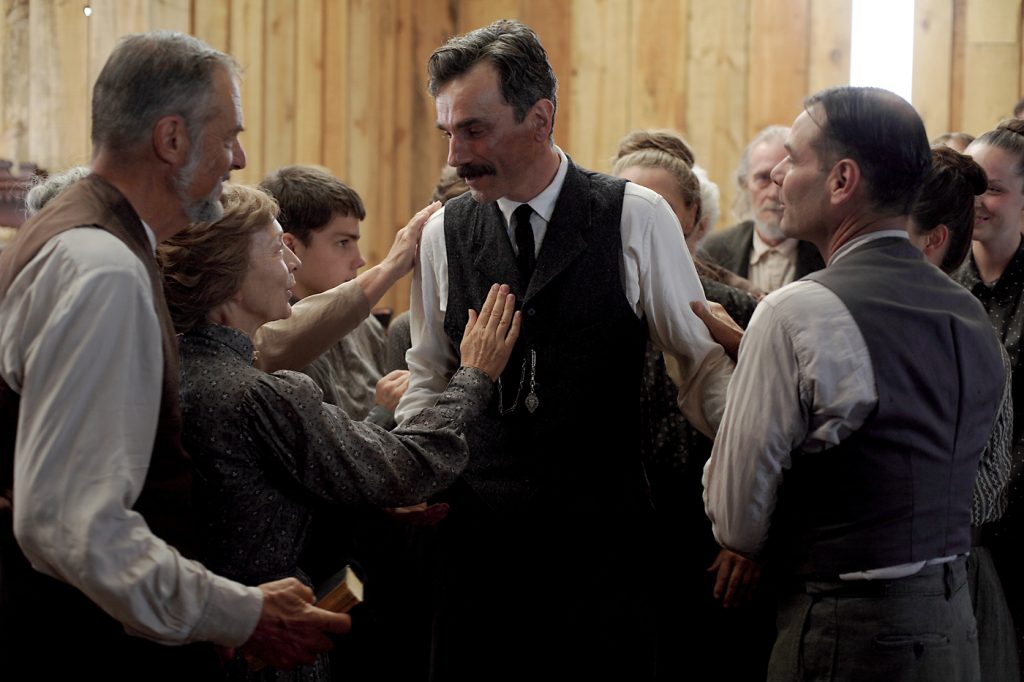
#1 There Will Be Blood
In almost any other year No Country for Old Men would easily claim the top spot, but 2007 was a special year indeed, bringing us There Will Be Blood, a film of once-in-a-generation power. P.T. Anderson’s opus of oil, greed, family, and religion announces him as the premier American director, an artist of verve, boldness, feeling, and intellect.
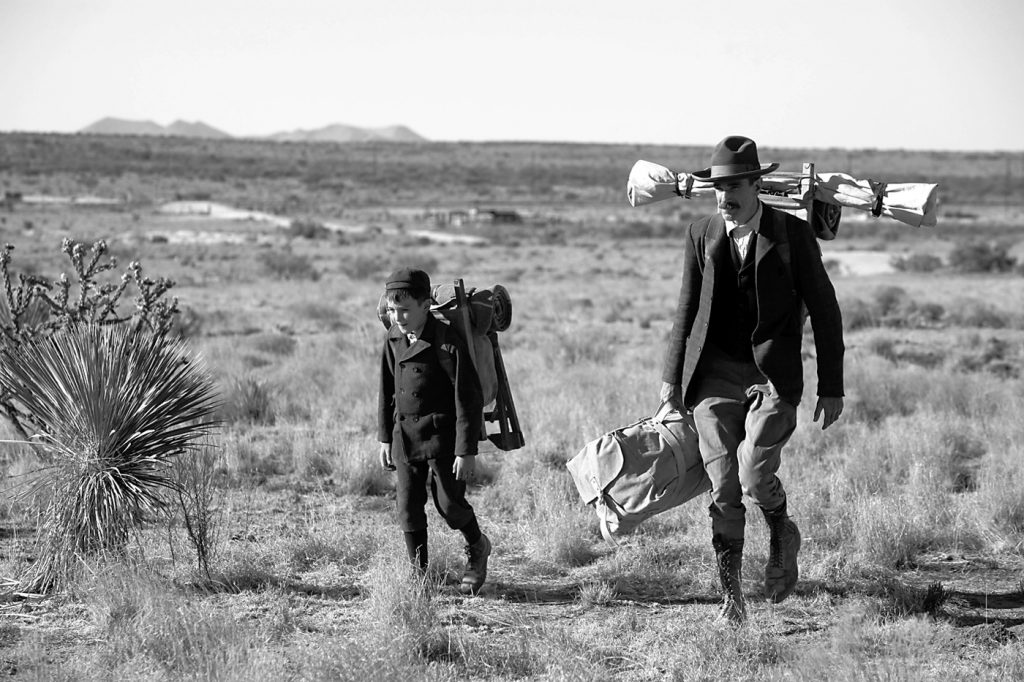
The shortest two-hour-and-forty minute film I’ve ever seen, There Will Be Blood chronicles turn-of-the-century wildcatter Daniel Plainview’s rise to fortune and fall from humanity and his near Biblical feud with unctuous preacher Eli Sunday.
In the greatest filmic performance I’ve witnessed, Daniel Day-Lewis turns Plainview into a creation simultaneously metaphoric and absolutely real. This is emblematic of the entire, miraculous film—it succeeds as parable and classic tragedy. Thrillingly physical and aesthetically palpable, the film is flamboyant yet restrained, classic yet totally modern. An unequivocal masterpiece.
The Worst Film of 2007
Let’s go with The Nanny Diaries. It was smug, boring, and had that skin-crawl effect of movies that try too hard to be smart and cute. It wasted massive amounts of talent (Paul Giamatti, Laura Linney etc.), featured the unbearable Alicia Keys, and made the baffling choice to use the George Michael song “Freedom.” It’s not the cultish trainwreck that Lady in the Water is; it just sucks, and serves as an excellent example of how hard it is to make a mediocre film, let alone a great one. Luckily, it totally bombed, so maybe there’s hope for us yet.
